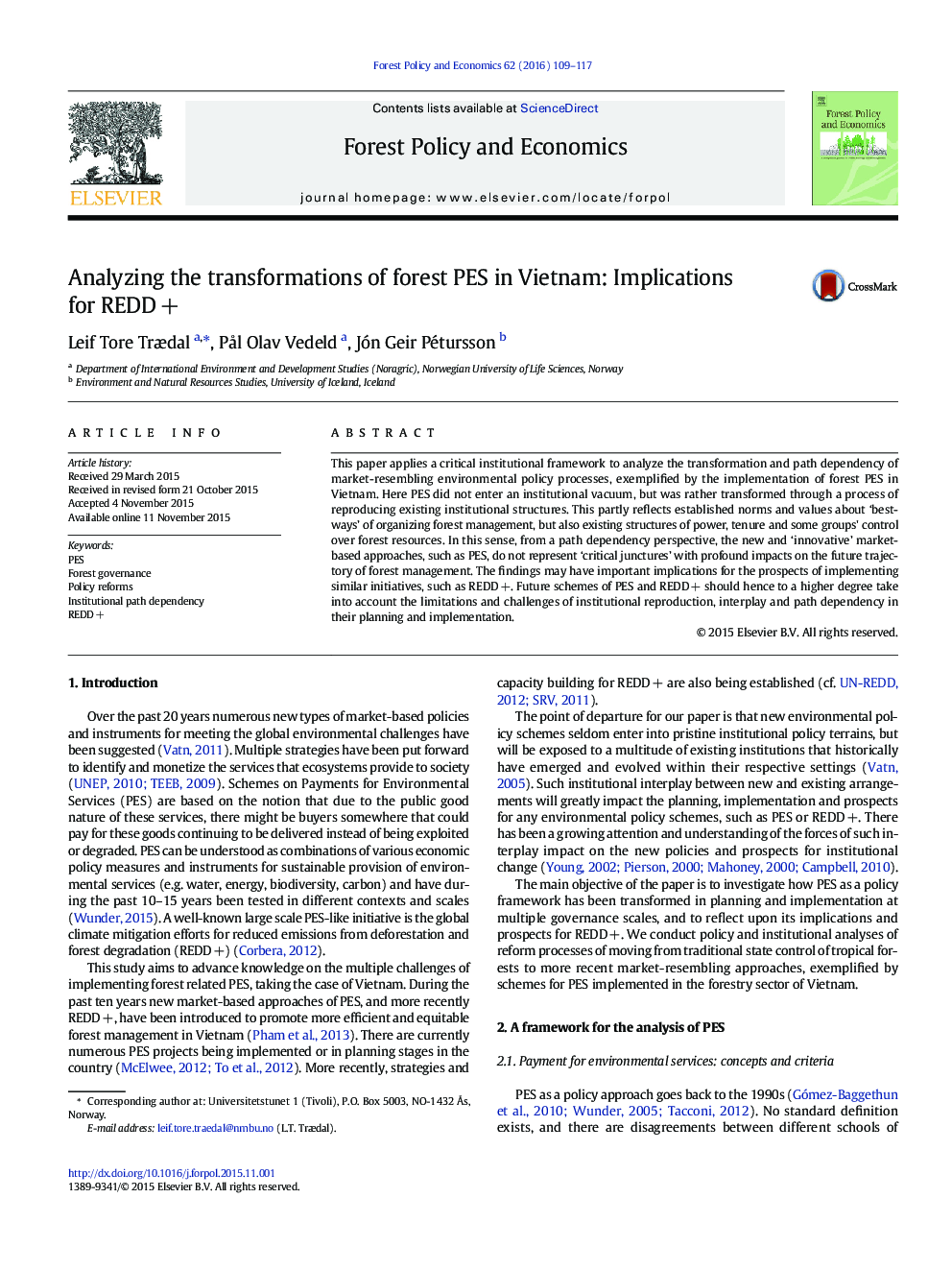| Article ID | Journal | Published Year | Pages | File Type |
|---|---|---|---|---|
| 6544911 | Forest Policy and Economics | 2016 | 9 Pages |
Abstract
This paper applies a critical institutional framework to analyze the transformation and path dependency of market-resembling environmental policy processes, exemplified by the implementation of forest PES in Vietnam. Here PES did not enter an institutional vacuum, but was rather transformed through a process of reproducing existing institutional structures. This partly reflects established norms and values about 'best-ways' of organizing forest management, but also existing structures of power, tenure and some groups' control over forest resources. In this sense, from a path dependency perspective, the new and 'innovative' market-based approaches, such as PES, do not represent 'critical junctures' with profound impacts on the future trajectory of forest management. The findings may have important implications for the prospects of implementing similar initiatives, such as REDDÂ +. Future schemes of PES and REDDÂ + should hence to a higher degree take into account the limitations and challenges of institutional reproduction, interplay and path dependency in their planning and implementation.
Related Topics
Life Sciences
Agricultural and Biological Sciences
Forestry
Authors
Leif Tore Trædal, PÃ¥l Olav Vedeld, Jón Geir Pétursson,
